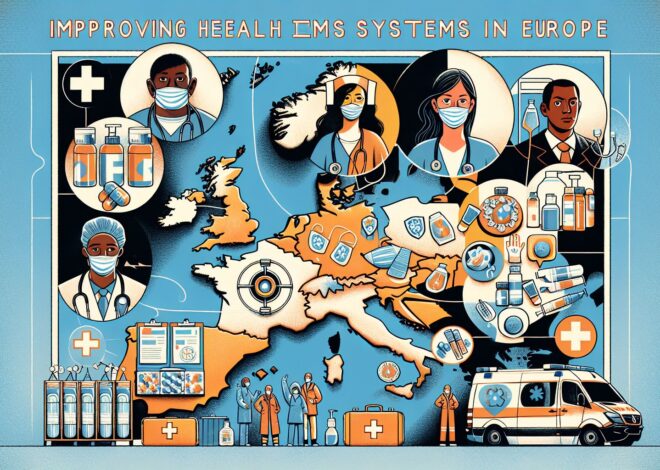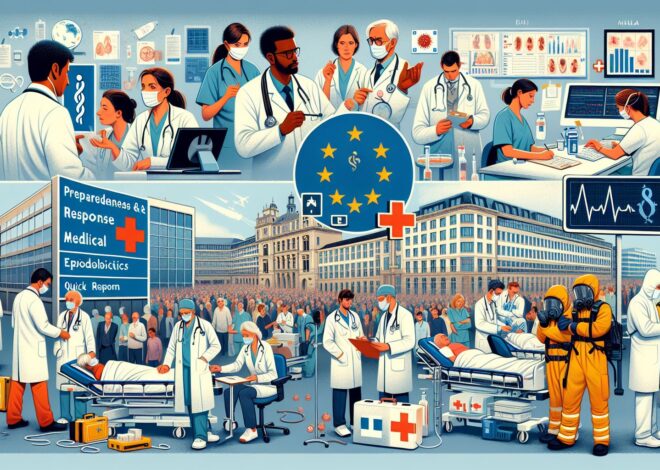
The Preparedness and Response of European Health Systems
European health systems have been faced with unprecedented challenges in recent years, with the COVID-19 pandemic being a stark reminder of the importance of preparedness and response in times of crisis. As health professionals, policymakers, and concerned citizens, it is crucial for us to understand the strengths and weaknesses of our health systems, and to work together to ensure that they are equipped to effectively respond to future challenges.
Preparedness
One of the key aspects of preparedness in European health systems is the availability of resources, both in terms of healthcare personnel and infrastructure. Health professionals play a critical role in delivering care to patients, and it is essential that there are enough skilled professionals to meet the demand. In addition, having adequate infrastructure, such as hospitals, clinics, and medical supplies, is crucial for ensuring that patients receive the care they need in a timely manner.
Another important aspect of preparedness is having robust public health systems in place. This includes systems for monitoring and controlling infectious diseases, as well as for providing health education and promoting healthy behaviors. By investing in these systems, European countries can better prevent and respond to outbreaks of infectious diseases, such as the recent COVID-19 pandemic.
Response
The response of European health systems to the COVID-19 pandemic has been varied, with some countries faring better than others. One of the key factors influencing the response has been the level of coordination and communication between different levels of government, as well as between different countries. Countries that have been able to establish strong coordination mechanisms have been better able to mobilize resources and respond effectively to the pandemic.
In addition, the ability of health systems to adapt and innovate in the face of rapidly changing circumstances has been essential for an effective response. For example, many European countries have rapidly expanded their testing and contact tracing capabilities, as well as developed new treatments and vaccines for COVID-19. By being flexible and proactive, health systems can better meet the evolving needs of patients and communities.
Implications for Health Professionals
As health professionals, it is essential for us to stay informed about the latest developments in our field, and to continuously update our knowledge and skills. By staying up-to-date with best practices and guidelines, we can better contribute to the preparedness and response efforts of our health systems. In addition, it is important for us to advocate for policies that support a strong and resilient health system, including adequate funding, staffing, and infrastructure.
Implications for Policymakers
Policymakers play a critical role in shaping the preparedness and response capabilities of European health systems. By investing in public health infrastructure and capacity, policymakers can better protect the health and well-being of their populations. In addition, policymakers should prioritize collaboration and information-sharing between different levels of government, as well as between different countries, to ensure a coordinated and effective response to future health threats.
Implications for Concerned Citizens
As concerned citizens, there are several ways we can contribute to the preparedness and response efforts of European health systems. By staying informed about public health issues and following public health guidelines, we can help prevent the spread of infectious diseases and protect vulnerable populations. In addition, by advocating for policies that prioritize health and well-being, we can help ensure that our health systems are better prepared to respond to future challenges.
Conclusion
In conclusion, the preparedness and response of European health systems are critical for protecting the health and well-being of populations. By investing in resources, infrastructure, and public health systems, as well as improving coordination and communication between different stakeholders, European countries can better prepare for and respond to future health threats. As health professionals, policymakers, and concerned citizens, it is essential for us to work together to strengthen our health systems and ensure that they are equipped to meet the needs of patients and communities in times of crisis.



